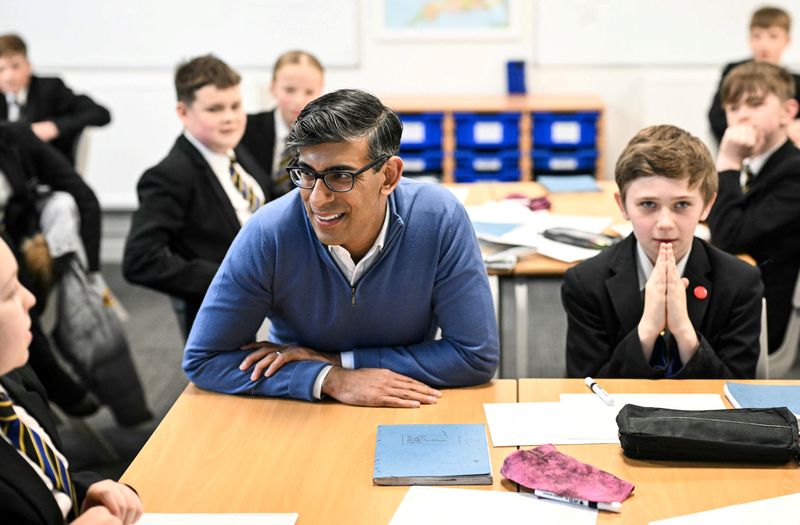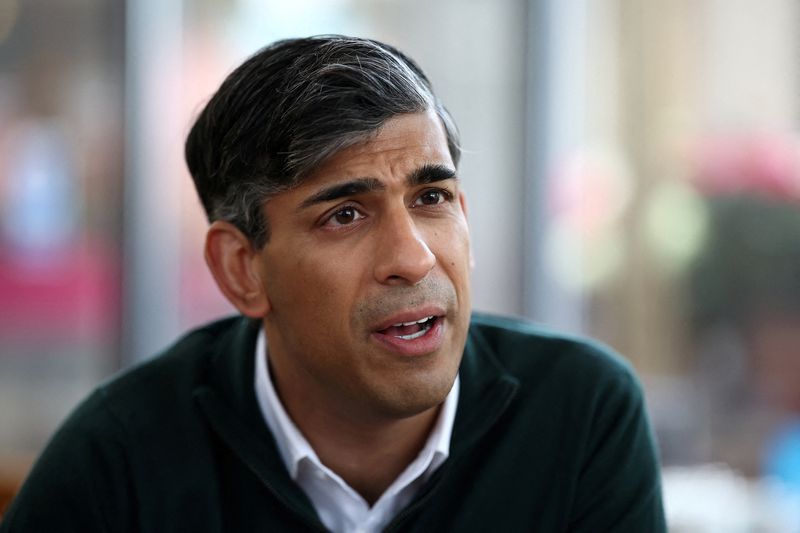By David Milliken
LONDON (Reuters) - Three British opinion polls released late on Saturday presented a grim picture for Prime Minister Rishi Sunak's Conservative Party, and one pollster warned that the party faced "electoral extinction" in July 4's election.
The polls come just over halfway through the election campaign, after a week in which both the Conservatives and Labour set out their manifestos, and shortly before voters begin to receive postal ballots.
Sunak surprised many in his own party by announcing an early election on May 22, against widespread expectations that he would wait until later in the year to allow more time for living standards to recover after the highest inflation in 40 years.
Market research company Savanta found 46% support for Keir Starmer's Labour Party, up 2 points on the previous poll five days earlier, while support for the Conservatives dropped 4 points to 21%. The poll was conducted from June 12 to June 14 for the Sunday Telegraph.
Labour's 25-point lead was the largest since the premiership of Sunak's predecessor, Liz Truss, whose tax cut plans prompted investors to dump British government bonds, pushing up interest rates and forcing a Bank of England intervention.
"Our research suggests that this election could be nothing short of electoral extinction for the Conservative Party," Chris Hopkins, political research director at Savanta, said.
A separate poll by Survation, published by the Sunday Times, predicted the Conservatives could end up with just 72 seats in the 650-member House of Commons - the lowest in their nearly 200-year history - while Labour would win 456 seats.
The poll was conducted from May 31 to June 13.

In percentage terms, the Survation poll had Labour on 40% and the Conservatives on 24%, while former Brexit campaigner Nigel Farage's Reform UK party - a right-wing challenger to the Conservatives - was on 12%.
A third poll, by Opinium for Sunday's Observer and conducted from June 12 to June 14, also showed Labour on 40%, the Conservatives on 23% and Reform on 14%, with the two largest parties yielding ground to smaller rivals.
